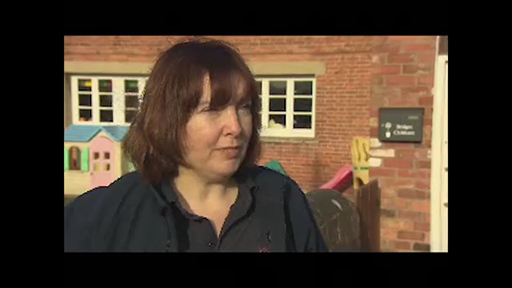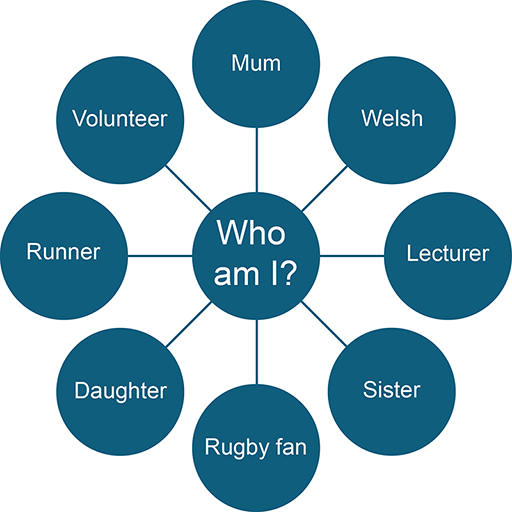4 Identity and belonging
Right from birth, babies and young children meet lots of different people that they will form relationships with, and to do this they need to develop a sense of belonging. They need to be able to make connections with other people in a range of situations, and this means they have to develop an understanding of who they are and how they interact with others.
Activity 2 Who am I?
Take a moment to think about how you would answer the question: ‘Who am I?’
What was the first thing that came into your mind? What other answers came up? You may have thought about your nationality, your family role, your interests, your religion, your job, your background, your home and lots of other things. The diagram below shows some of the answers that one of the course authors came up with.
Type your response to the question ‘Who am I?’ in the box below.
Discussion
All these elements make up our identity, and looking at all these different aspects shows us that our identities are complicated. They are affected by lots of factors and situations and these are constantly changing. If you had been asked this question five years ago, it is likely that some of your answer would be different. Looking at the different aspects identified also shows us how our identity is linked to our relationships – if we see ourselves as a carer, a sibling, a friend, or an employee, all these roles are connected to other people.
Relationships are the foundation of everyone’s sense of identity, and particularly of babies’ and toddlers’ developing identities. They affect how a child will respond to their future experiences. You can find out more about how setting supports babies’ and children’s sense of belonging by looking at the ‘Belonging’ pathway in the Welsh Government’s A Curriculum for Funded Non-maintained Nursery Settings
In the same way that our identities change and develop, babies and young children are also exploring their identity and finding out how this relates to the people around them.
Activity 3 Developing relationships
Watch the Open University video below that follows Harvey and Lizzie in the baby room of a nursery. As you watch, use the box to note down any behaviours that you think show how Harvey and Lizzie are beginning to develop their identities and their relationships with others.

Transcript: Video 2
Discussion
You might have noted Harvey looking intently at Millie and touching her foot to get her attention, or noticed how Millie was using the books in the same way that her mum told us that her sister does. Watching the video we can see that the babies are constantly looking around the room, noticing what is happening or focusing on a toy or activity, and these experiences all provide opportunities for them to develop their sense of identity and belonging.
Nurturing a sense of belonging through sensitive care in the very earliest stages of a child’s life is essential for a child’s wellbeing. Experiencing positive, loving and warm relationships helps babies and toddlers learn to understand and express their feelings, as well as to develop a firm sense of belonging. If a child experiences traumatic events, these can have a negative impact on their ability to develop a sense of belonging. These experiences are sometime called Adverse Childhood Experiences, or ACEs.
Whilst ACEs have been shown to have long-term negative effects on children’s physical and mental health and wellbeing, early intervention by early childhood professionals can significantly reduce the impact of the experiences and improve the child’s outcomes (Grimmer, 2022). ACEs are recognised in the Welsh Government’s Framework for Early Childhood Play, Learning and Care (2023) and in A Curriculum for Funded Non-maintained Nursery Settings (2022) as an issue that practitioners need to be aware of, and these documents provide useful additional information and links to further support.

